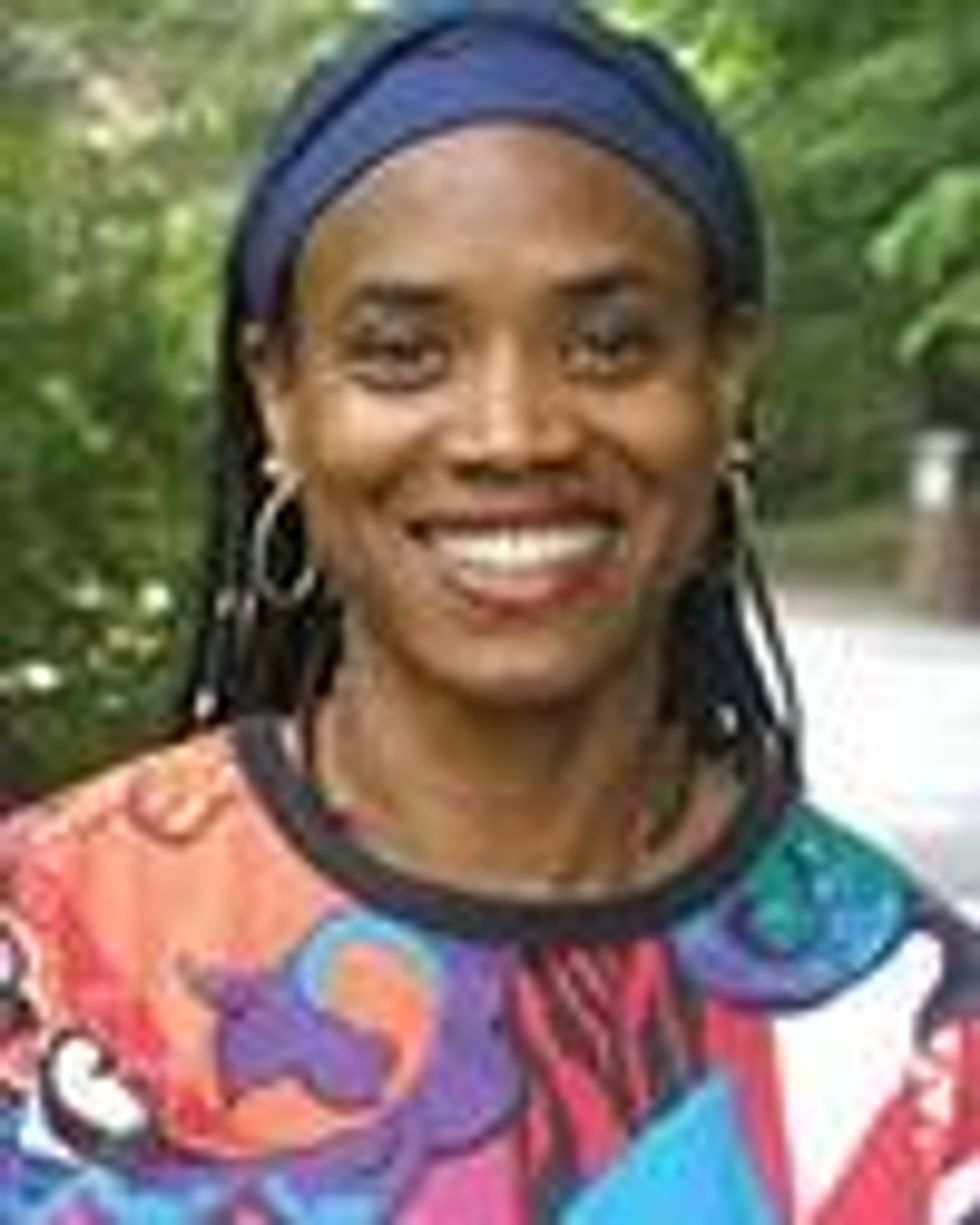Voices
Love and Violence in Black LGBT Communities

During Domestic Violence Awareness Month, Rev. Irene Monroe pleads for more resources for LGBT communites of color.
October 07 2016 2:47 AM EST
By continuing to use our site, you agree to our Privacy Policy and Terms of Use.

During Domestic Violence Awareness Month, Rev. Irene Monroe pleads for more resources for LGBT communites of color.
The Jills were the envy among us lesbian couples of African descent. Their public display of love for each other and their exchanges of their special terms of endearment were the stuff you read in romance novels. They were inseparable, and we distinguished them by calling them Jill and Jillie.
When I received the call that one was being seen in the emergency room and other one was being detained by the police for battering I knew it had to be a mistake. But looking back, there were visible signs of interpersonal violence that we sister-friends came to understand, and we wished we could have intervened on their behalf. But we were so enamored, envious, and awestruck by their oversize demonstrative displays of love and respect for each other that we didn't see their troubled marriage.
October is Domestic Violence Awareness Month, and within lesbian, gay, bisexual, transgender, and queer communities of color, not enough attention, education, intervention, and advocacy is given to this issue.
This 2014 Advocate article reports that "21.5 percent of men and 35.4 percent of women living with a same-sex partner experienced intimate-partner physical violence in their lifetimes. ... Transgender respondents had an incidence of 34.6 percent over a lifetime according to a Massachusetts survey." An Inter-Personal Violence study conducted in 2011 stated that LGBT communities of color are one of the demographic groups experiencing high incidents of domestic violence.
However, accurate statistics of how common interpersonal violence is in these communities are obfuscated by social stigmas and cultural taboos as well as racism and other forms of oppressions and discriminations. What also interferes in obtaining accurate statistics on how high such violence is in these communities of color is that same-gender interpersonal violence is clouded with myths. And within these communities there are several cultural barriers preventing reporting domestic violence and receiving interventive services.
The black church is one of them.
Jill grew up in the church, and whenever troubled, she took her woes and concerns there. The network of support through prayer and counseling wasn't available to Jill and her spouse once she came out.
In 2016 many black churches are woefully far behind the country's acceptance of LGBT Americans. These places of worship are still spewing homophobic rhetoric from their bully pulpits. And unfortunately, some LGBT victims of interpersonal violence have internalized the church's message that they are an abomination to God and therefore deserve to be abused, flogged, and beaten.
"I thought I showed strength by staying in the relationship," Jill said. "I thought if we acted happy we would become happy."
With too many churches espousing a theology emphasizing the place and value of suffering in one's life as a test from God, coupled with the marriage vow "for richer or poorer until death do us part," the act of forgiveness is seductively elevated as both redemptive and virtuous -- this results in too many LGBT victims staying in abusive relationships.
The politic of silence is another cultural barrier preventing reporting domestic violence and receiving interventive services.
While the politic of silence rightfully aims to diminish a deleterious white gaze on the black community -- past and present -- it doesn't aid us to not voice and address problems plaguing our communities, like HIV, mental illness, suicide, and interpersonal violence, to name a few. Rather than addressing these problems, they are spun into a damaging discourse of blame, shame, stigma, and misinformation. And with many of us having to confront the daily microaggressions of racism and homophobia in the workplace and out in the world, the last thing many LGBT victims want to tackle is violence at home, a supposedly "safe space."
Jill's spouse suffered with bipolar disorder, so Jill always attributed her spouse's violence to her mood changes. Looking back we sister-friends only saw the couple during what they depicted as being "jubilantly high on love."
The dominant view by both health care professionals and law enforcement officers that communities of color, especially of African descent, have a predisposition toward violence gravely interferes with victims taking action and a community raising awareness. With a cultural distrust of law enforcement officers due to the rash of shootings and killings of unarmed black men and women in streets across America, most in my community -- straight and LGBT -- call for police only in extremely dire situations. Consequently, victims of interpersonal violence, especially LGBT ones, are not taken seriously.
For example, since both the victim and the abuser are of the same gender and are in a consensual sexual relationship, many law enforcement officers confuse same-gender sexual violence as part and parcel of being homosexual.
Health care disparities in communities of color and LGBTs are only exacerbated for LGBT people of color. Sadly, this creates distrust, as well as a lack and underutilization of resources toward healing, prevention, and moving on.
The Jills have finally separated, but not because of police intervention or heath care prevention. We sister-friends stepped in. Not everyone has a support system, though. Resources and services have to be made available to LGBT communities of color. And this is the time to reach out to us. Everyone deserves a safe, loving, healthy, and violence-free relationship. LGBT communities of color have to be educated to embrace the fact that they do too.
*The names are fictional and the couple described is a composite of numerous couples I counseled on interpersonal violence.

Charlie Kirk DID say stoning gay people was the 'perfect law' — and these other heinous quotes